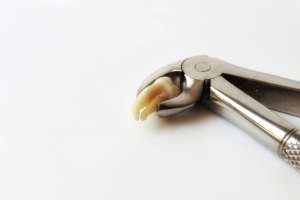Uncategorized
Practical Reasons Why You Might Want To Remove Your Wisdom Teeth
Also known as third molars, wisdom teeth are located at the very back of our gums and usually emerge between ages 16 and 25. While many people have wisdom teeth that grow fully without any complications, often, they do not have the room in the mouth to grow into their normal position and cause a whole host of other problems. Many dentists recommend extracting wisdom teeth before the roots and bones start developing to avoid further complications or diseases.
If you have wisdom teeth, then here are some common reasons why it may be a wise decision to get rid of them.
Sensitivity and Pain
One of the most telltale signs that you may need to have your wisdom teeth removed is that you have begun to experience any pain or sensitivity. Your wisdom teeth may be coming in at an angle and can not properly fit in your mouth due to limited room. Like most other dental problems, it may start small and may not cause major discomfort to you in the beginning.
However, you must not overlook the initial wisdom teeth pain and visit a dental office at the earliest. Leaving it untreated may further lead to more severe toothache and ultimately cause a serious infection.
Gum Inflammation
As the wisdom teeth push against other surrounding teeth and start to move them, they can cause your gums to swell and lead to your jaw feeling sore and difficult to open. That could make it challenging to brush and cause swelling of the gum in the back of the jaw, eventually leading to a painful gum infection called peritonitis. As mentioned at Implantat – Tannimplantat | Vinterbro Tannlegesenter, the risk of infections drastically increases when food particles and other bacteria become trapped in between the partially impacted wisdom teeth and your gums.
We recommend that you do not allow yourself to get to this point and get a timely evaluation done with your dentist to determine your best course of action.
May Lead To Cysts and Cavities
Ignoring your impacted wisdom tooth may cause cysts or other tiny jaw tumors to develop. Cysts are a sac-like pocket of fluid that accumulate and affect the surrounding area and may cause difficulty eating, drinking, and swallowing. Left untreated, they have the potential to develop into tumors that may require additional surgery.
Besides, impacted wisdom teeth can also cause plaque build-up due to gaps and spaces created around the area that may be difficult to reach and brush or floss. That may lead to cavities and tooth decay over time.
May Cause Sinus Problems
The growth of wisdom teeth and their roots in the upper back jaw can put pressure on the sinuses located behind the nose. That may cause headaches, congestion, and sinus pain. If you experience any of these symptoms, it may be about time to book a dental appointment.
Wisdom teeth may seem painless and easy to ignore if they show no symptoms; however, they can lead to major dental problems if left untreated for long. Knowing the warning signs of a problematic wisdom tooth can help you identify the issue in its infancy and make a timely visit to the dentist, who may suggest that it is about time to get it extracted.


























